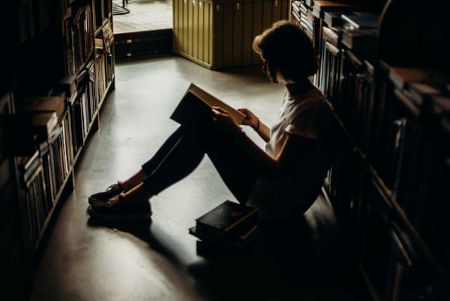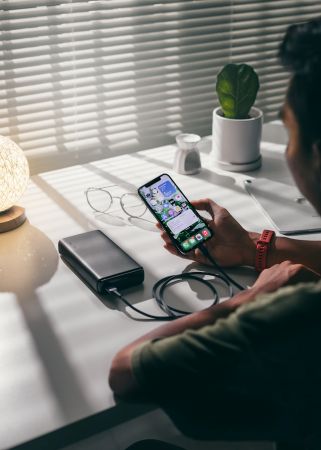On the 28th of April 2025, Portugal, Spain and the south of France were among those who lost power all of the sudden just before midday. This was a complete ‘black out’, in bright daylight to start with. In this article I am going to go over the event in three parts: what I observed within me (my own personal experience), what I observed around me (afterward mostly) and what I learned from it.
Let me start with the fact that during the first 2-3 hours of the power outage, I still had some patchy but usable network coverage and a little bit of data. I am not sure if that was the case for everyone else, but it personally gave me a buffer in time to alert those around me about the situation – as my close ones were all overseas when the power outage took place. By mid afternoon, there was nothing. In other words, no way to contact anyone, no way to be contacted by anyone.
Luckily, I was at home with my dog when it happened and it was a glorious sunny day. I cancelled everything I had scheduled online while I still could and did a quick inventory of my status food wise, knowing that I couldn’t cook anything (I have an electric stove). Based on that, I decided to stay at home and to reassess things the next morning if, by then, things had not gone back to normal. I gathered the battery packs I have and charged both my phones – which in essence was pointless since I could not use them, but it gave me a sense of security somehow. I checked that I had cash in my wallet (can’t use cards of course since everything is down) and I was relieved that I did. I also knew that I had a full tank in the car and that too somehow brought me some comfort. My 12L water filter was full and finally I had a stack of candles (8-hour tea light ones) and matches for the night shall I need to. I noticed that two things really unsettled me: first, the fact that I had no working GPS through my phones (and I am unsure if the one from the car would have worked, though in theory it should) and that I didn’t know how to drive from memory to the veterinarian emergency should I need to. This was a dreadful thought that dawned on me unexpectedly. Second, when both my phones lost all network – I truly felt uneasy.
In terms of what I did. I spent a lot of time with my dog outside, getting some sun, playing, and the rest of the time, writing in my notebook and reading on the sofa. I essentially made peace fairly quickly with the fact that this was going to be an enforced analog day and that I was going to make the most of it. I didn’t open my computer the entire day (even though I could have since I could charge it with the power banks). I was lucky to be amongst the first to get the power back on. Overall the blackout lasted 7 hours exactly for me and it was still bright daylight out when the electricity came back. And this is somehow important in this context because one thought that came unexpectedly to me multiple times during the day was: I need to make the most of the daylight – because by the evening, we’re going to lose the light… And this thought is what pushed me to spend more time outside than I would normally do. To give you an idea, I found out that some friends who live within 10-15 km from where I am spent the whole evening by candle light, playing cards and board games.
My phones’ network coverage and data came fully back later in the evening. So it was only then that I started to receive messages, access news, social media, and get updates about what had been going on for the rest of the world. When I realised the chaos that took place in big cities (Lisbon, Barcelona, etc.), I felt deeply grateful I was at home when it started and with what I needed to feel okay. Some people found themselves in tricky and really stressful situations (stuck in elevators, underground in the metro, far from home, kids in daycare with no way to communicate with the daycare centre, etc.). When I could finally get more information, I found out that many Portuguese had been panic buying in the supermarket that day. There was video after video online of agitated people with overloaded trolleys full of fresh food (remember, for most there would be no working refrigerators at home), and toilet-paper (Covid vibe making a swift comeback). Without going into too much about this type of reaction, I’d like to bring your attention to the fact that shopping during a blackout was made possible because Portugal remains a “cash society” where the majority of people pay in cash for most day to day items. Something that wouldn’t be possible en-masse in the UK, for example.
Now let me offer some thoughts around what can be learned.
The obvious lesson is to be ready for the eventuality of such an event happening again. For a start, since we don’t know the exact cause of the blackout (I’ll end this article about this point), and it makes sense to be open to the likelihood of this not being an isolated event. I know that the notion of planning, preparing, and the overall prevention mindset isn’t for everyone, or to put it differently, for a lot of people it feels very draining and taxing. If it comes easy for some, for some others it simply doesn’t. So especially, for those in the latter group, I suggest you make a list of what you need to be better prepared. Being organised can relieve a huge amount of stress. This is true for most things in life. Within what’s possible, what do you need to feel okay in such circumstances?
That’s personally exactly what I did. I took note and made a list of what I need to take care of and organise so that if it happens again, it’s even smoother. I also have an overall list of the essentials I require to feel safe (or safer) in case this was to reoccur. It’s not about being paranoid but simply realistic about the reality we live in. In other words, I take it as risk management. Now we know there is a risk, we’ve been warned (so to speak), it’s our responsibility to do our best to support ourselves to be as self-reliant and adaptable as possible.

Finally, I want to point out that in my personal view, it has been difficult to get reliable and truthful information about what happened on the 28th April. I didn’t come across anything that came close to relevant until the 2nd of May, and it was in French. Nicolas Meilhan, who is an engineer and strategy consultant specialising in energy and transport was interviewed for two hours by the “citizen journalist” Dr Idriss J. Aberkane ( 3 x PhD). This was after Nicolas was scheduled to talk on French national radio but was then deprogrammed because what he had to say wasn’t what they wanted him to say. Some food for thought about being able to recognise when we are “being kept in the dark”, literally or metaphorically. And lastly to take a note of how such a disturbance of unprecedented size and impact has disappeared from almost every news channel within a week of its occurrence.
Main – Photo by Mateusz Grabowski on Unsplash





